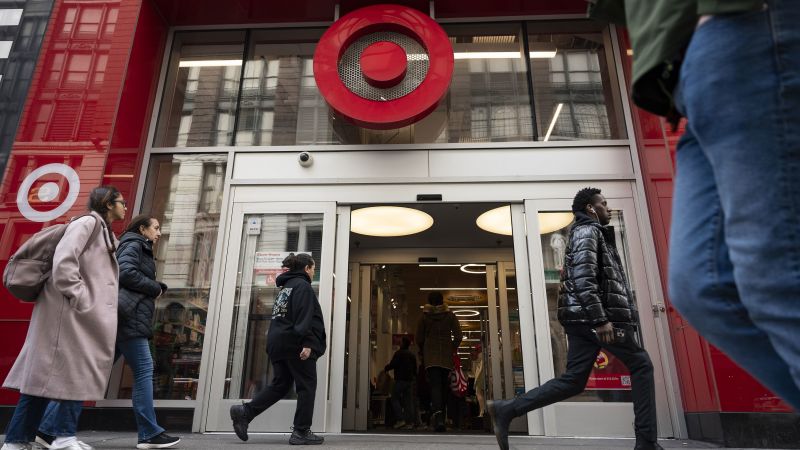
Target rolled back DEI efforts. A boycott ensued – and traffic dropped
CNN
Target is just one of the companies now walking a tightrope, balancing the demands of President Donald Trump to end diversity efforts with what customers might want from the corporations they do business with.
When Target announced on January 24 that it would scale back diversity, equity and inclusion (DEI) commitments, customers reacted swiftly, upset that a company that had so loudly touted its diversity initiatives appeared to be backtracking. For 10 consecutive weeks, foot traffic at Target stores has declined — down 9% year-over-year in February and 6.5% year-over-year in March, according to data from analytics firm Placer.ai. While Placer.ai notes a variety of factors were likely to blame, like weather and a drop in post-holiday spending, Rev. Jamal Bryant has driven another reason for a drop-off: a fast — from shopping. Bryant, the senior pastor of New Birth Missionary Baptist Church near Atlanta, spearheaded a 40-day “fast” from shopping at the big-box store during Lent (March 5 to April 17). The Target Fast boycott had more than 200,000 participants, he said. Target is just one of the companies now walking a tightrope, balancing the demands of President Donald Trump to end diversity efforts with what customers might want from the corporations they do business with. “They hear me. The cash register hears me,” Bryant told CNN. “Power concedes nothing without a demand.” The pressure is particularly acute at companies like Target, that had previously championed diversity in hiring and in sourcing their products.

Sales prices for sports teams are soaring to record levels. Here’s why, and what that means for fans
The Los Angeles Lakers topped their archrival the Boston Celtics with a record-setting $10 billion franchise price tag this week — just three months after the Celtics held the honor for the highest sale price for a professional sports team at $6 billion. The record may not last long.





















 Run 3 Space | Play Space Running Game
Run 3 Space | Play Space Running Game Traffic Jam 3D | Online Racing Game
Traffic Jam 3D | Online Racing Game Duck Hunt | Play Old Classic Game
Duck Hunt | Play Old Classic Game










